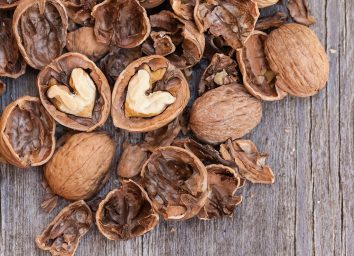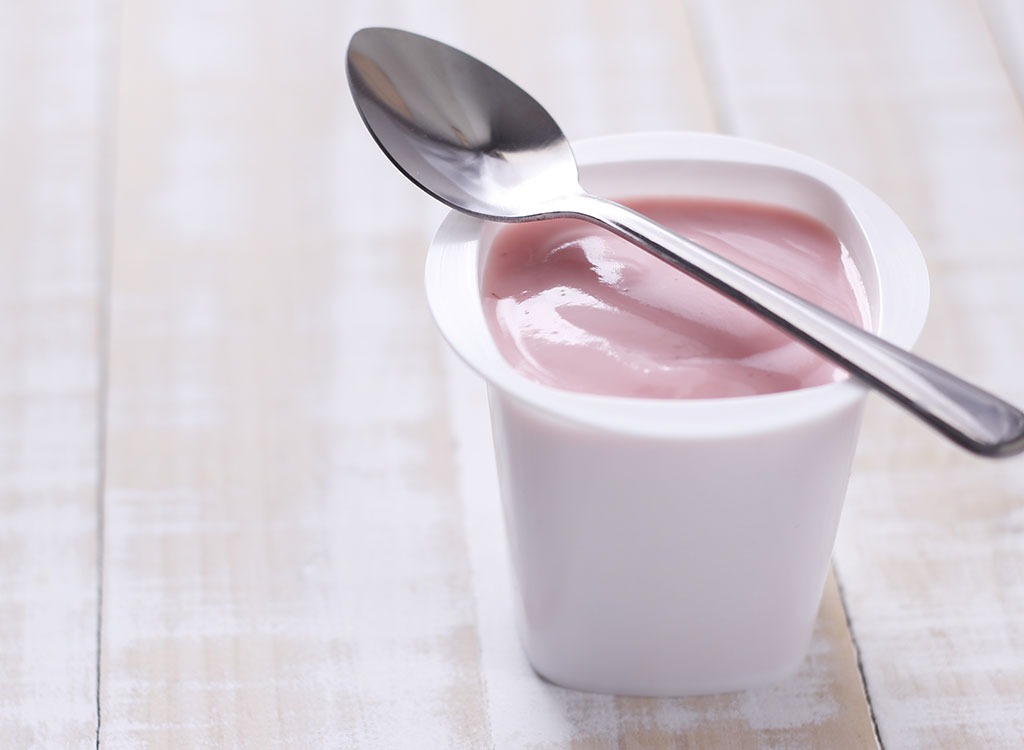
Heart disease is the number one killer of American adults; it takes the lives of 610,000 people each year, which is more than lung cancer, breast cancer, and skin cancer combined. Although heart disease and related complications can be genetic, your heart health is greatly impacted by lifestyle factors — especially by what you eat.
Most people assume dietary cholesterol is the number-one heart offender—after all, keeping your “bad” cholesterol (LDL) down and your “good” cholesterol (HDL) is essential for heart health—but recent research proves there’s no correlation between eating cholesterol and the levels of cholesterol in your blood. Instead, there are plenty of other foods that could be taking a heavy toll on your heart health without you realizing. Here are some of the biggest offenders, and be sure to avoid these 20 Worst Habits for Heart Health.
Added Sugar
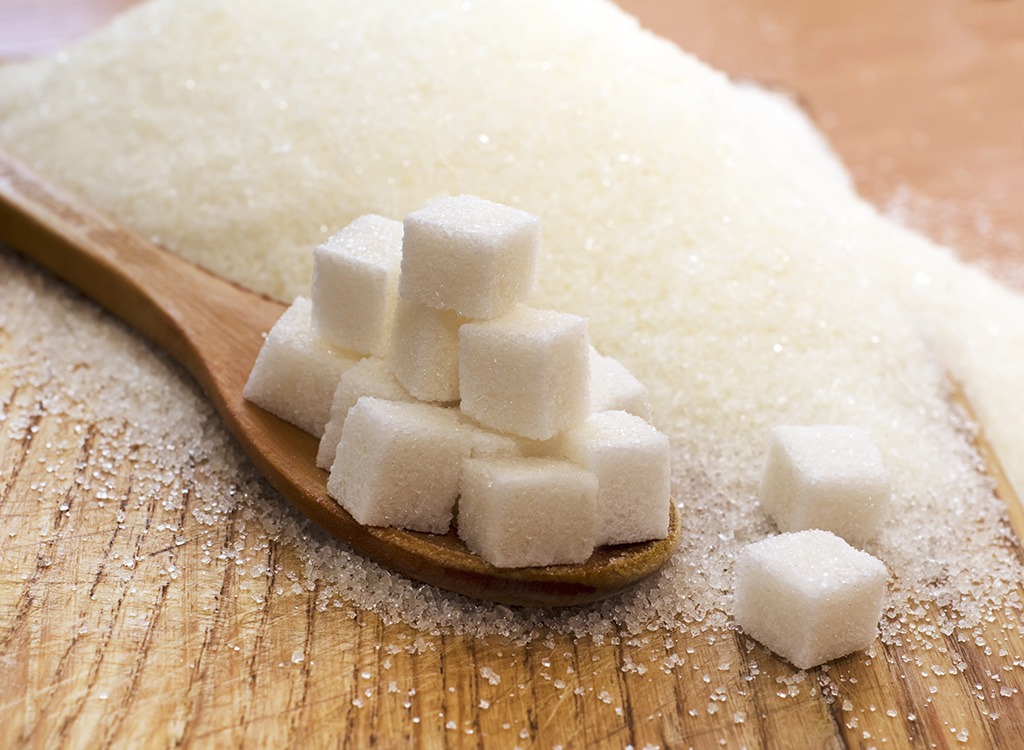
The sweet stuff that’s lurking in everything from candy to pasta sauce to ketchup is one of the worst offenders for your heart. “I am on a crusade against sugar,” says Adam Splaver, MD, clinical cardiologist and co-founder of Nano Health Associates. “Anything that has glucose, fructose or any sort of sugar is bad for your heart as it increases inflammation and inflammation begets cardiovascular disease.”
The FDA recommends people no more than consume 50 grams of added sugar a day, but the American Heart Association recommends no more than 36 grams of added sugar for men and 25 grams for women for optimal heart health. If you’re trying to protect your heart, it’s best to keep it within the 25-36 grams range. If you need help in cutting back on the sweet stuff, pick up a copy of the Zero Sugar Diet, on which test panelists lost up to 16 pounds in 14 days, or develop a plan with your doctor.
High Fructose Corn Syrup
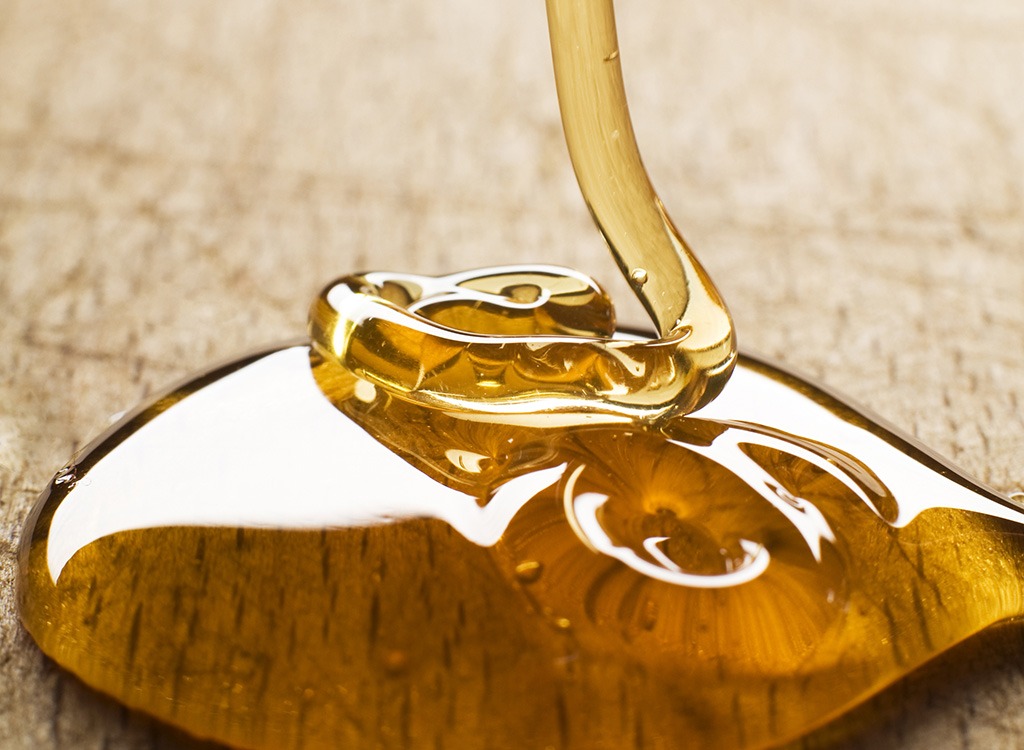
Sugar, in general, is bad for your heart, but high fructose corn syrup could be one of the worst offenders. Dr. Splaver warns that fructose can overload your liver and cause insulin resistance. This can lead to metabolic disorders such as type II diabetes. Check your labels, and be sure to avoid these 23 Shocking Foods with Hidden Corn Syrup.
Baked Goods

“Baked goods have a double whammy of sugar and hidden saturated fat,” Dr. Splaver says. “[They] generally have no nutritional value and often contain hidden saturated fat and hydrogenated shortenings, which may raise your bad cholesterol (LDL).” Some hydrogenated shortenings contain trans fats, which have been shown to raise cholesterol levels.
Soda
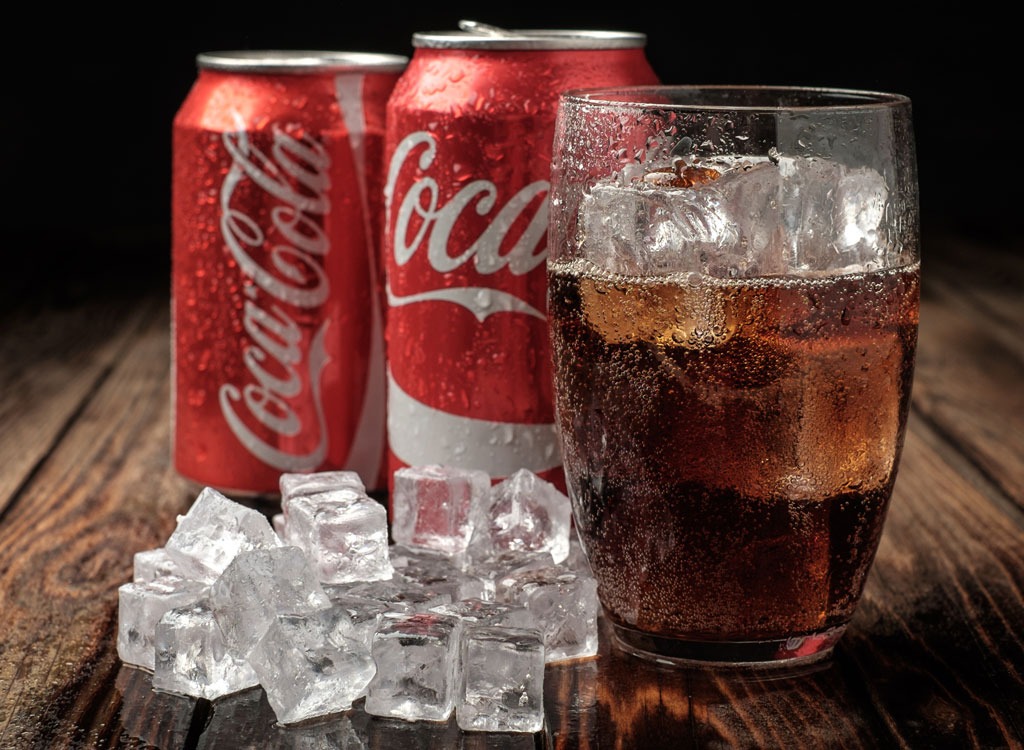
It’s not just all the sugar that makes soda a problem, it’s the fact that it’s liquid sugar. “Drinking soda has serious consequences,” Dr. Splaver warns. “Regular soda promotes an insulin spike, which leads to weight gain and can cause a host of metabolic disorders. Beyond the sugars, soda has phosphoric acid which can promote osteoporosis and may be a cancer-causing agent. And the sugar can lead to inflammation which causes cardiovascular disease.”
Diet Soda
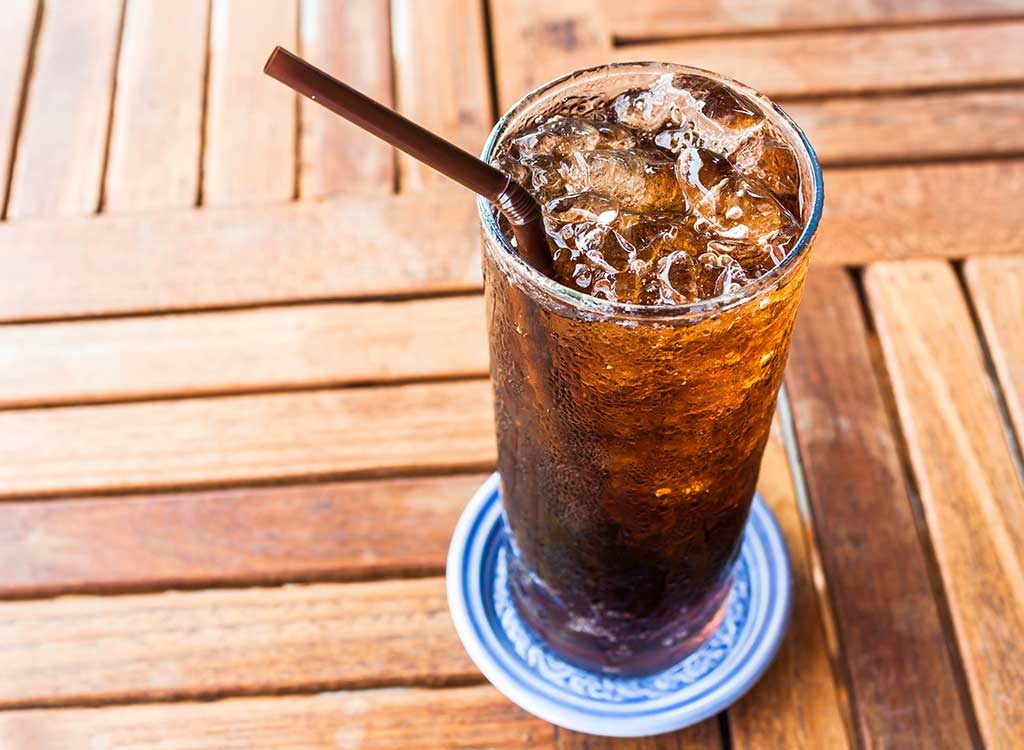
Think diet soda is a better alternative to the regular stuff? Think again. “Artificial sweeteners can lead to the same spike and risk of metabolic disease; a recent study indicated that excessive drinking can counterintuitively lead to weight gain,” Dr. Splaver says. “Consuming diet soda will tell your pancreas to make more insulin, which will increase your adiposity (fat deposits) and risk of cardiovascular disease.” Swap your soda (or diet soda) for sparkling water with a squeeze of fresh fruit.
Fruit Juice

Sure, even the purest fresh-squeezed fruit juice contains necessary vitamins and minerals, it’s also packed with heart-destroying sugar — one 8-ounce glass of orange juice has more than 20 grams of sugar. “Fruit juices are basically sugar and should be avoided,” Dr. Splaver says.
“Consider how many pieces of fruit it takes to make a full glass of juice,” Suzanne Fisher, registered dietitian, licensed nutritionist, and founder of Fisher Nutrition Systems says. “By drinking your fruit and vegetables you lose the essential fiber that could help normalize elevated blood lipids — a key risk factor for heart disease. Be careful of portion size, most bottles appear to be one serving, but most likely are two, thus doubling the calories and sugar grams you may be drinking in one sitting.”
Reduced-Fat Hot Dogs and Cold Cuts

“Even the lower fat versions of these cured meats contain the preservative, sodium nitrate,” explains Fisher. “Nitrates are linked to potential heart disease risk and are known to promote inflammation. Chronic inflammation has a direct link to the development of atherosclerosis.” For a better alternative, we like Applegate Natural Uncured Turkey Hot Dog which is made without nitrates and nitrites and each dog is just 70 calories, 3.5 grams of fat (0.5 grams saturated fat), 0 grams of carbs, 0 grams of sugar, and 7 grams of protein.
Fat-Free Packaged Foods
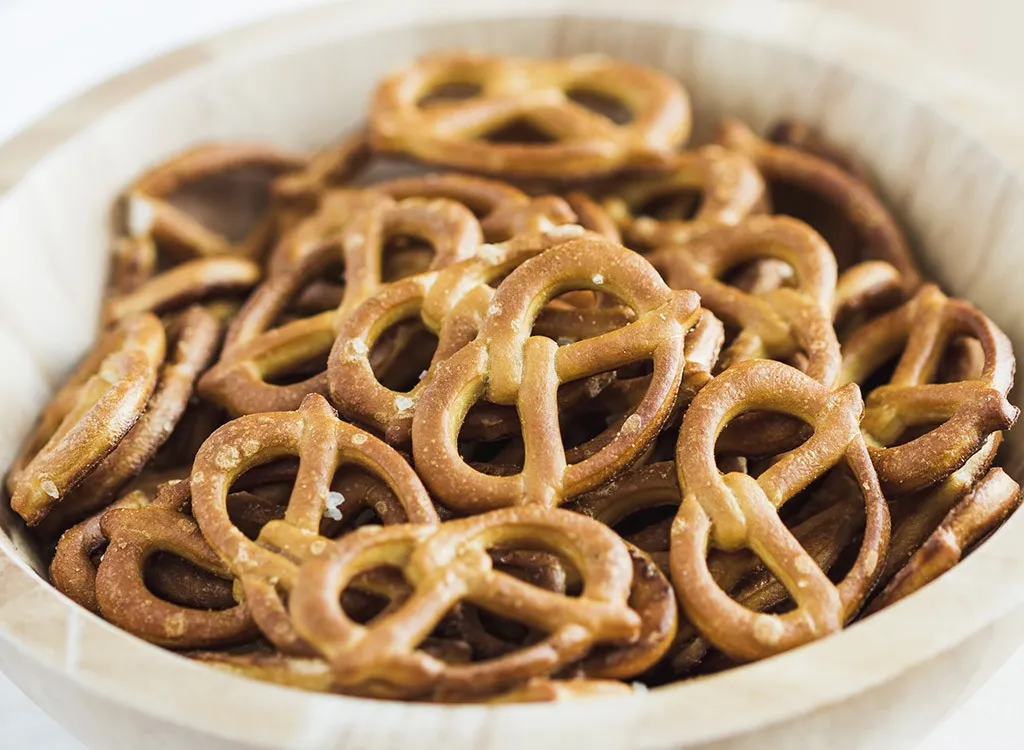
“Fat-free products were once touted as a healthy option for individuals wanting to lose weight and maintain a healthier lifestyle. When fat is removed, sugar is typically added to maintain the taste and texture of the packaged goods,” Fisher explains. “A good rule of thumb is to avoid purchasing any product that is not normally fat-free. Read food labels and ingredient lists to determine many grams of sugar may have been added as a fat substitute.”
Vegetable Shortening
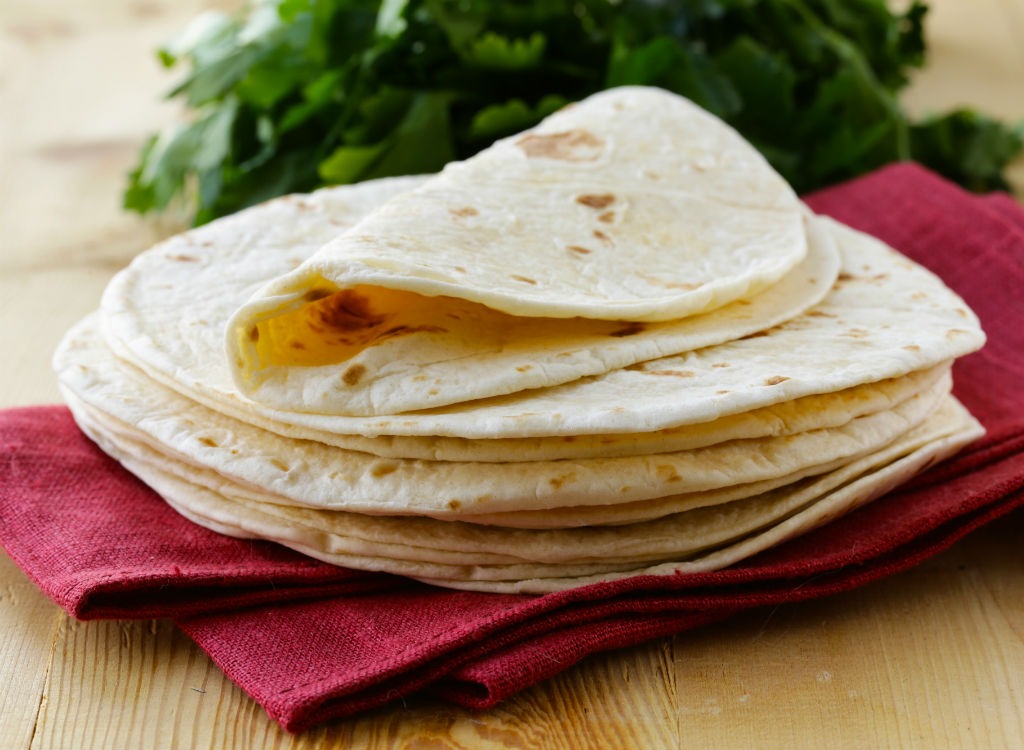
Although dietary cholesterol doesn’t impact blood cholesterol, saturated fat does. “Saturated fats like vegetable shortening increase inflammation and have a negative impact on your cholesterol parameters, which can cause cardiovascular disease,” Dr. Splaver says. Vegetable shortening is found in lots of packaged food, including wraps, tortillas, and baked goods. Be sure to read your labels for this dangerous saturated fat.
Margarine
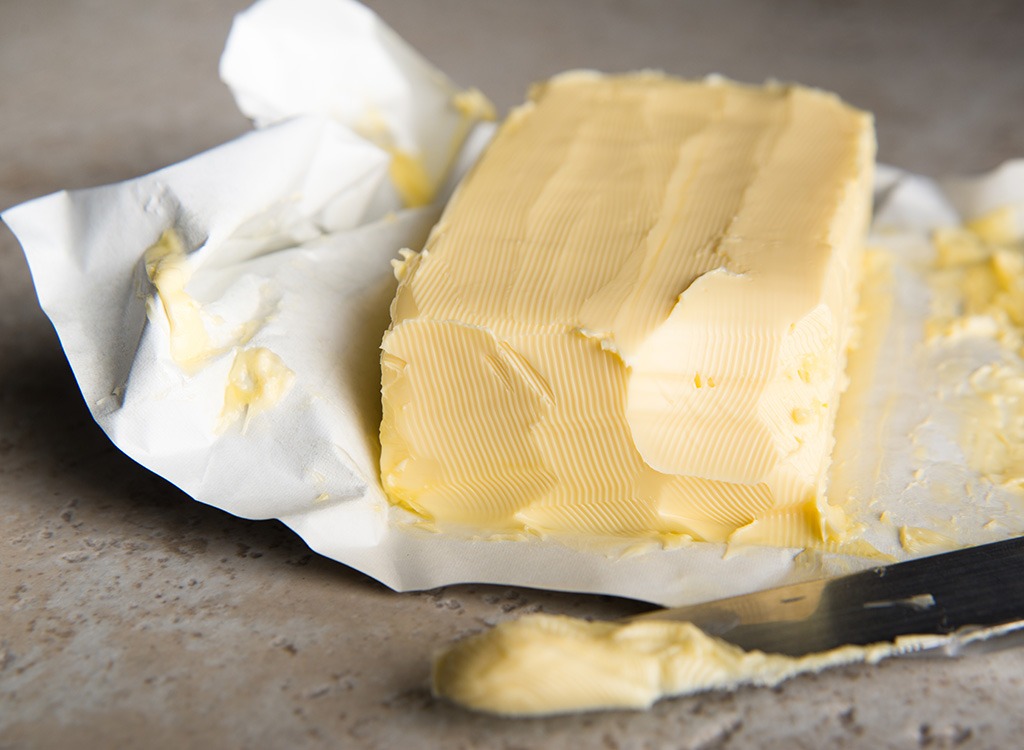
Along the lines of vegetable oil, margarine is another common saturated fat that can increase inflammation, Dr. Splaver warns. Margarine and butter alternatives were traditionally made with partially hydrogenated oils, which are the most common sources of trans fats and have been linked to heart disease. However, the FDA has deemed trans fans no longer generally recognized as safe, and have ordered all companies to remove trans fats from their food by 2018. Still, margarine is still made mostly of vegetable oils, which could be worse than sugar.
Coffee Creamer
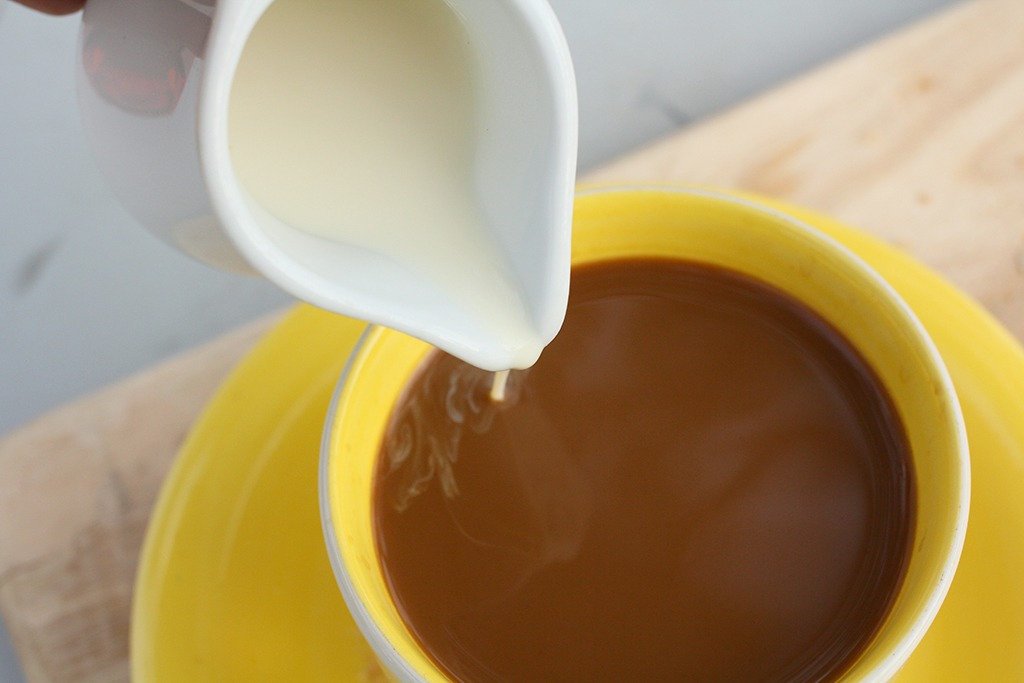
Even if you’re trying to stay away from dairy, nondairy coffee creamers are not the way to go. They are a common source of hydrogenated oils, aka trans fats. Not only are trans fats inflammatory, but they’ve also been linked to heart disease. Even if all coffee creamers remove their trans fats by 2018, they’re still chock-full of chemicals and sometimes added sugars. Instead, we recommend Coffee Mate’s Natural Bliss creamers or Nutpods dairy-free creamers; they come in delicious flavors and no scary ingredients.
Milk
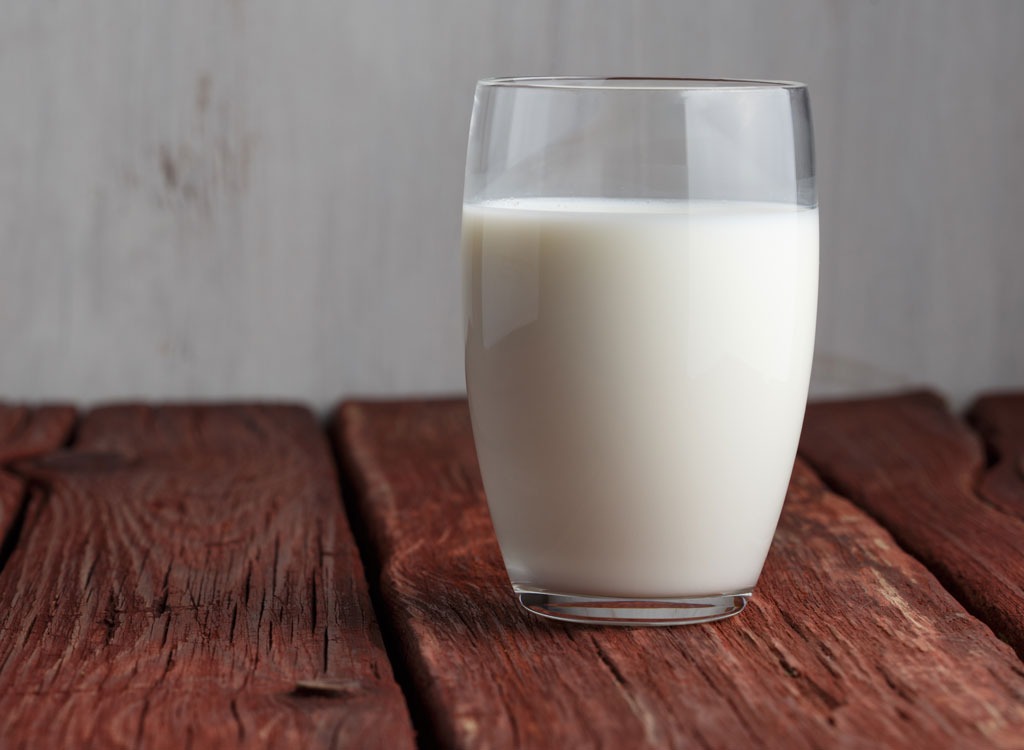
“Humans are the only animals that drink milk into adulthood,” Dr. Splaver explains. “Lactose, the sugar that is naturally found in milk, is typically not tolerated because the enzyme necessary to break it down is not properly made in over 90% of the adult population.” Dairy can also cause an inflammatory response in some people. Try cutting your intake of milk, cheese, and other dairy products, and limit yogurt consumption to plain Greek or Icelandic-style yogurts.
Full-Fat Cheese
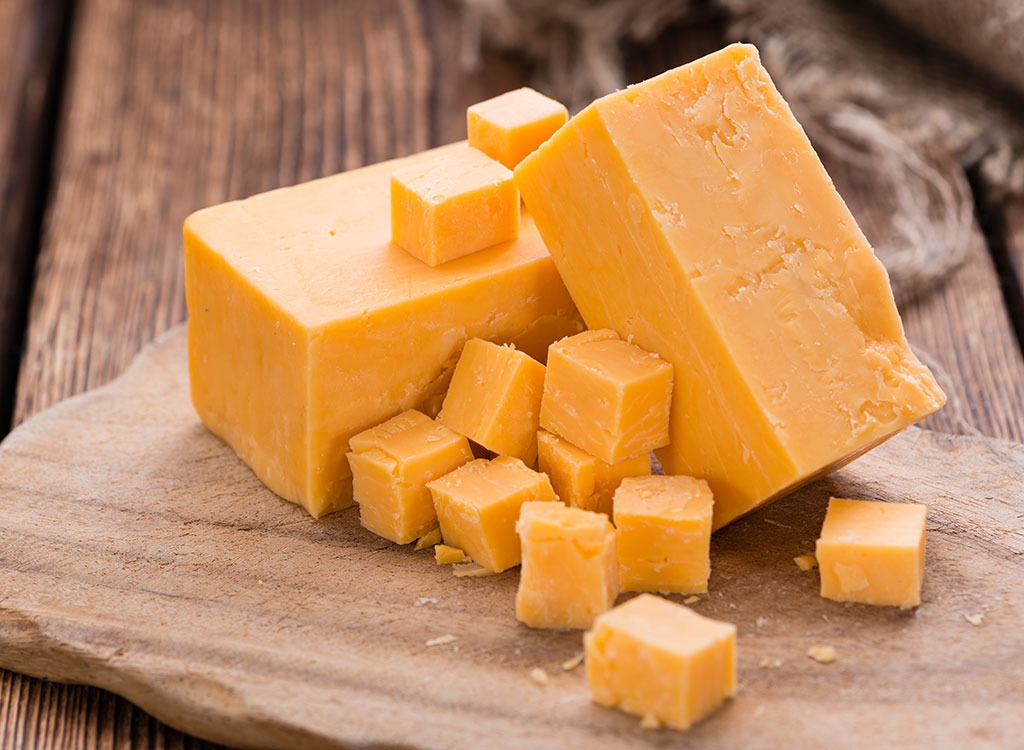
With milk off the table, that also means cheese should be enjoyed in moderation too, especially full-fat cheese. “Dairy products should be limited because consumption increases inflammation,” Dr. Splaver warns. “In addition, many adults have lactose intolerance or sensitivity which can cause gastrointestinal issues.” Full-fat cheddar cheese on average contains about 113 calories and 9 grams of fat (6 grams saturated) per ounce (about a slice).
Ice Cream
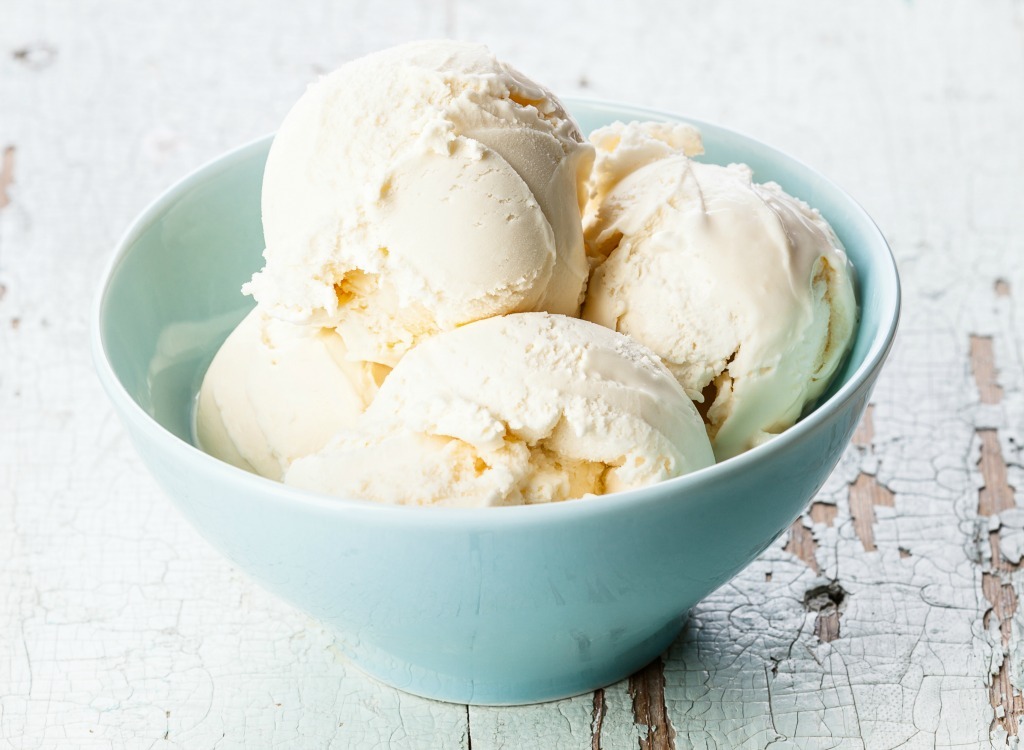
Ice cream is a double-whammy for heart health with its high sugar content and the inflammatory dairy. It’s also high in saturated fat, a no-no for your heart, and calories, which can contribute to weight gain and poor heart health. Just 1/2 cup of Haagen Dazs Butter Pecan packs 300 calories, 22 grams of fat (10 grams of saturated fat), 20 grams of carbs, and 17 grams of sugar. For a healthier alternative, pick up a pint of Halo Top. The vanilla flavor only has 60 calories, 2 grams of fat (1 grams saturated), 14 grams of carbs, 5 grams of fiber, 4 grams of sugar, and 6 grams of protein per 1/2 cup serving. And like with any dessert, it’s best enjoyed in moderation.
Soy
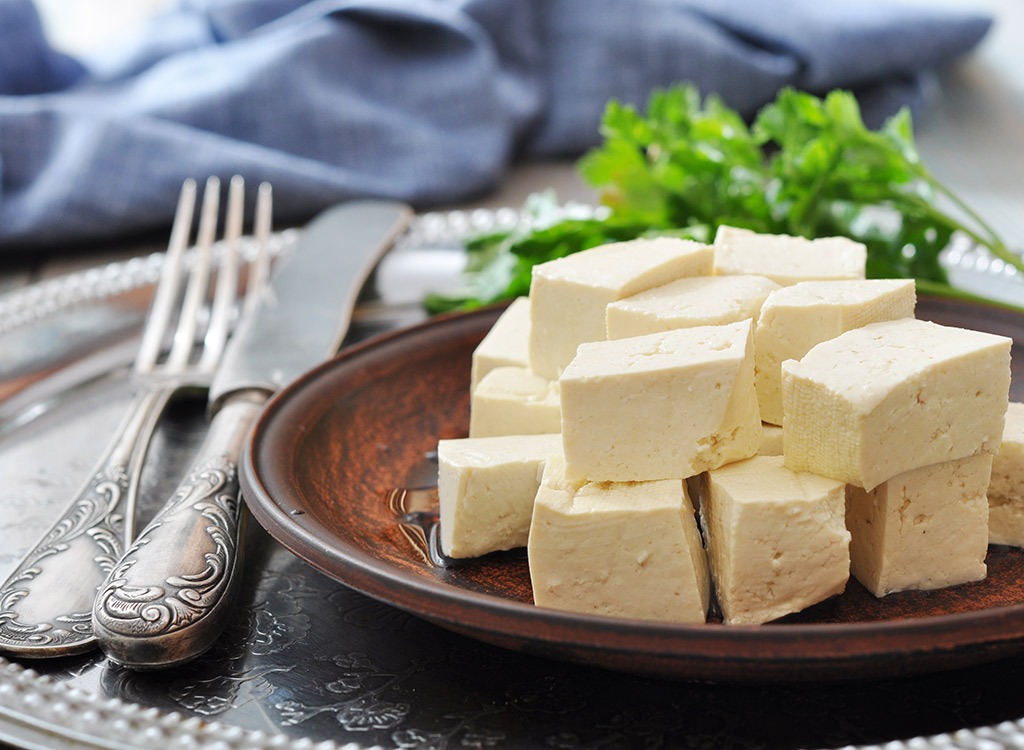
From soy milk to tofu to soy protein, it’s a meat-free alternative that should be avoided for heart health. “Soy products are xenoestrogens (artificial estrogens) that can increase your risk of different types of cancer, peripheral vascular disease, and cardiovascular disease,” Dr. Splaver says.
White Bread
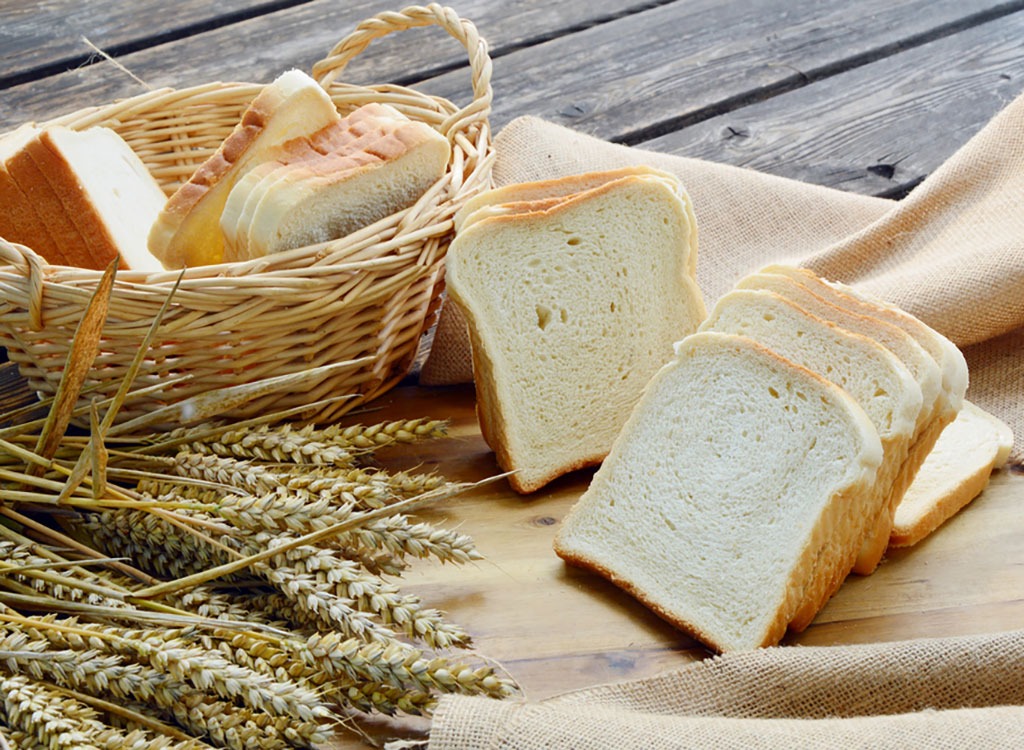
Although bread can be enjoyed in moderation, you have to be careful with white bread and other refined carbohydrates, Dr. Splaver says. Refined carbohydrates have been stripped of their whole grains and fibers during processing, so they’re chock-full of carbohydrates that can spike your blood sugar.
“The process of refining a food not only removes the fiber, but it also removes much of the food’s nutritional value, including B-complex vitamins, healthy oils, and fat-soluble vitamins,” Dr. Splaver says. “Eating refined carbs is linked to a drastically increased risk of many diseases, including obesity, heart disease, and type 2 diabetes.”
Cereal
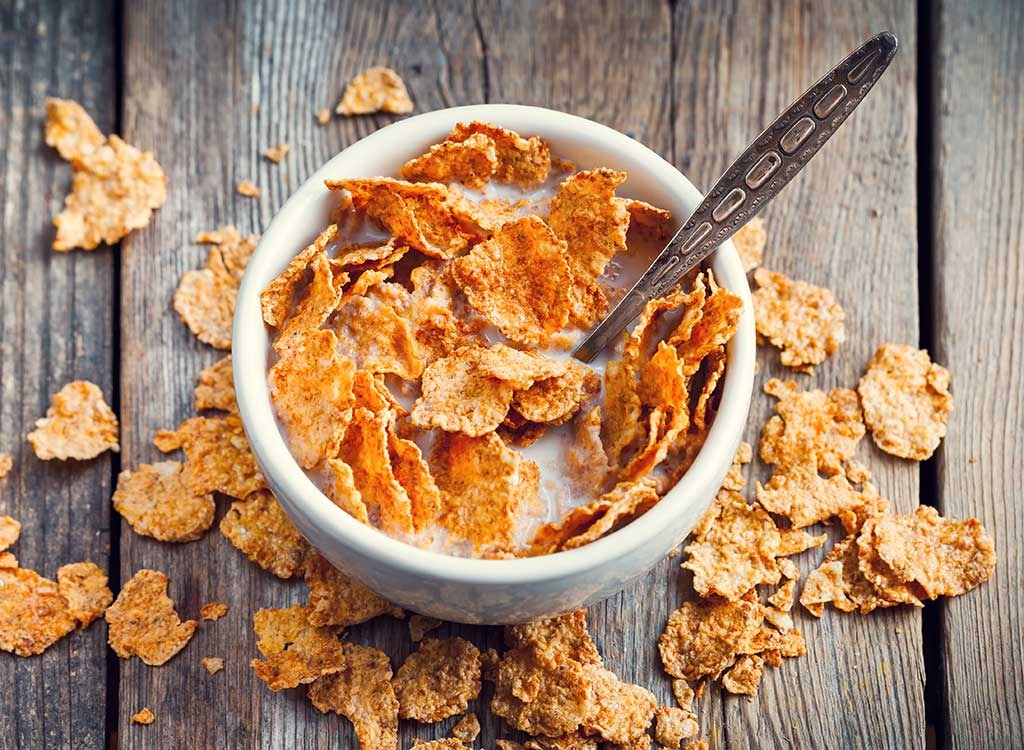
Cereal is one of those foods that have a health halo; people think it’s healthy because it’s fortified with a bunch of vitamins and minerals. But even “healthy” cereals are usually nothing more than a ton of refined carbohydrates and added sugars, like our list of 20 Worst ‘Healthy’ Cereals. For breakfast instead, focus on protein, complex carbohydrates, and healthy fat. Try making an omelet for breakfast packed with veggies; eggs used to get a bad rap because of their cholesterol content (especially in the yolks), but it has almost no effect on blood cholesterol. Enjoyed with a handful of berries and a little avocado, and you have a healthy, satisfying breakfast that won’t spike and crash your blood sugar like cereal will.
Flavored Yogurt
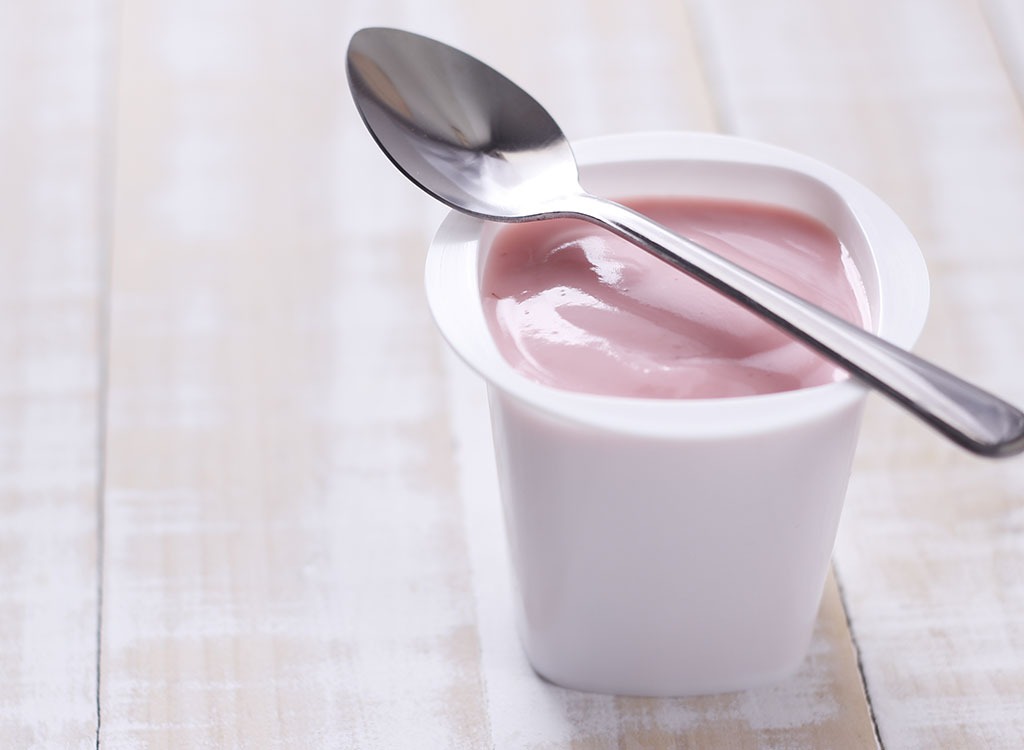
True, plain Greek or Icelandic yogurt is one of our favorite foods for weight loss. With a low sugar count and up to 20 grams of protein per serving, Greek and Icelandic yogurt can be a healthy part of your diet. Flavored yogurt, on the other hand, is a landmine of added sugars. Dannon’s Mixed Berry Fruit on the Bottom Yogurt, for example, has 21 grams of sugar — sugar is listed as the second ingredient on the container! Plus, the dairy could be inflammatory for some people. If you must fill a yogurt craving (and don’t have an intolerance to dairy), reach for Siggi’s Plain 0% Skyr for 90 calories, 0 grams of fat, 6 grams of carbs, 4 grams of sugar, and 16 grams of protein. Or choose from any of these 25 Best Yogurts for Weight Loss.
Salad Dressing
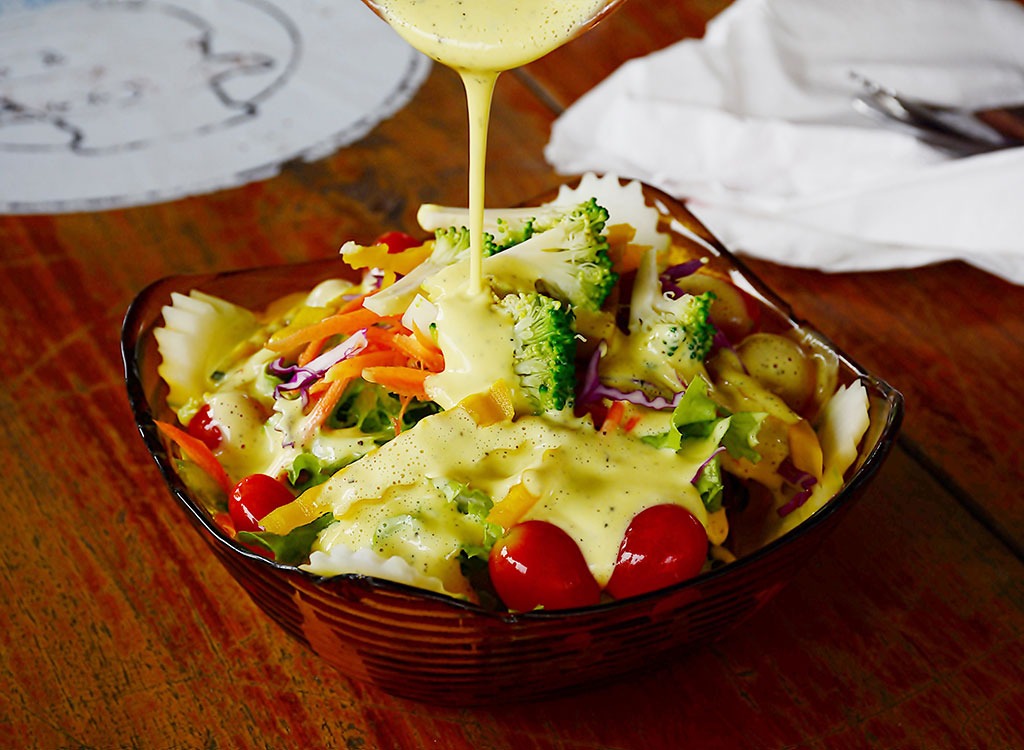
“Salad dressings, sauces, and marinades are often hidden sources of sugar and salt,” Fisher says. “A diet high in sugar can promote increased fat storage which in itself is a heart disease risk. A high sodium diet can increase blood pressure, which has also been shown to increase the risk of developing cardiovascular disease.” For better options, check out our list of Salad Dressings for Weight Loss.
Flavored Milk Alternatives
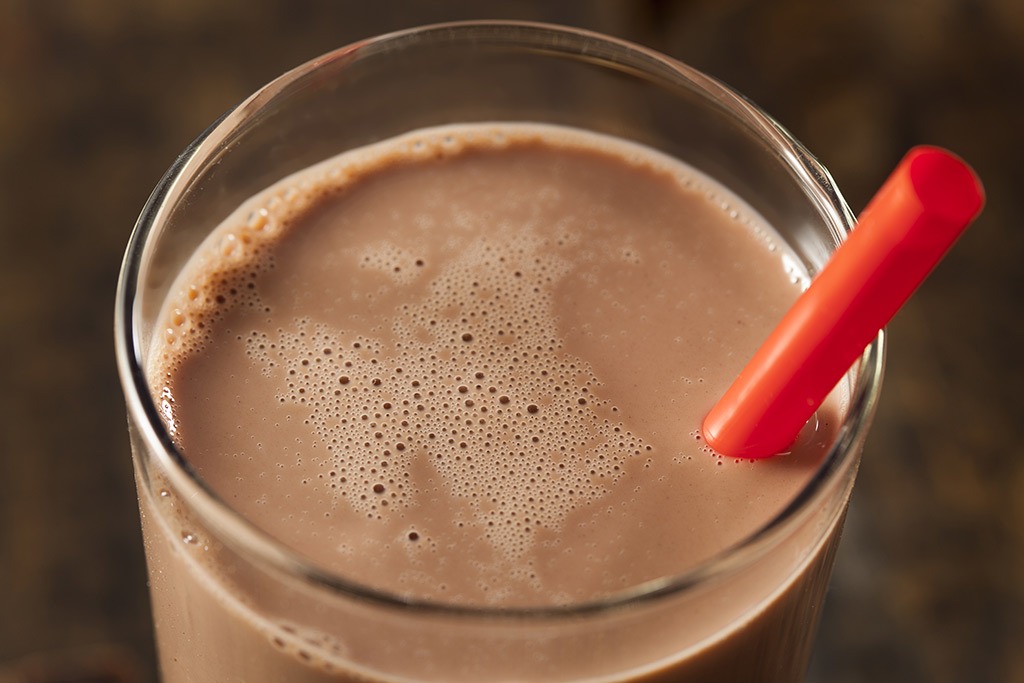
Although regular milk isn’t a great option for heart health, milk alternatives may not be much better, especially the sweetened versions. Almond, cashew, and soy milk all are lactose-free, but a lot of manufacturers pump these milk alternatives full of sugar to make them more palatable. “Not all milk alternatives are created equal,” Fisher explains. “Flavored and sweetened versions line supermarket shelves, making choosing the healthiest option that much more difficult. Read food labels and ingredient lists to make sure your milk alternative contains cardio-protective nut milk versus processed sugar.”
